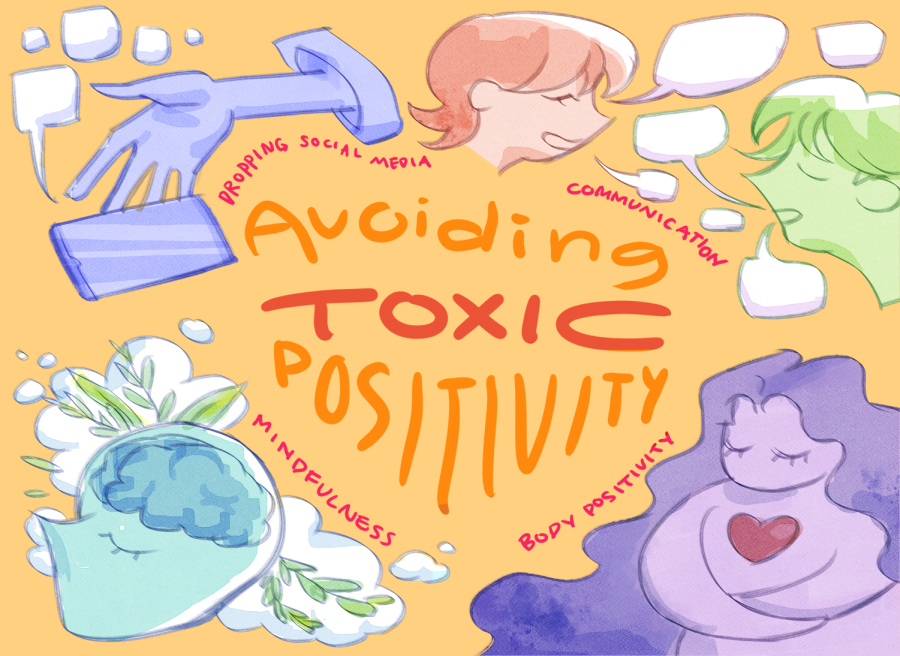The dangers of toxic positivity
FEEL THE FEELINGS: Today’s the day to take the toxicity out of positivity.
February 10, 2022
Although positivity can be a healthy coping mechanism when done in moderation, hiding behind layers of “good vibes” and “perfection” can undermine one’s genuine, existing insecurities as well as more serious mental health concerns. The promotion of toxic positivity, often fueled by social media and campaigns such as body positivity, must come to an end.
While an oxymoron at first, toxic positivity—or a false sense of cheerfulness—can be quite common, especially considering how easy it is to fall into its trap. Someone simply telling you to “get over it” during times of stress can open a gateway of lying about your own emotions and feelings. Bottling up all of this negativity behind attempts to “grin and bear it” can result in an eventual breakdown; as instructor of psychiatry at Harvard Medical School Natalie Dattilo said, “[emotions] have to go somewhere, so they come back up, like Whac-A-Mole.”
Social media is analogous to a petridish when it comes to birthing toxic positivity. The EndNow foundation states that many social media users fake happiness online in order to find social validation, instant gratification and contagious happiness. Constantly posting cherry-picked moments can lead to ignorance of internalized problems that actually need attention.
Social media offers a great example of why toxic positivity can pose a great threat to mental health; it spreads like wildfire. The ability to hide your true self is much easier when you live your life one image at a time, and this encompasses the larger issue with not identifying the negative. Some may start to believe that they don’t have the right to stay negative, which can pool up emotions into outbursts that can harm oneself and others around them.
Stemming from social media, body positivity has also become a topic of interest, and is also a great example of how toxic positivity can do harm. Pushing yourself at the gym to the point of injuring yourself should be avoided at all costs, even if you think you’re making gains.
But how can one go about preventing toxic positivity? Simple opportunities include practicing mindfulness: simply taking a moment to break away from the pressure from the world can allow you to identify and deal with the emotions that need to be addressed. Be comfortable with admitting your mistakes, and make sure the people around you accept you for who you are, and not who you pretend to be. It’s equally important, however, to not spread toxic positivity. This can be done in straightforward ways such as gently (emphasis on gently) talking with your close friends and family, but also by teaching younger generations that you aren’t obligated or expected to be happy all the time.
As much as we may want to paint over the darkness of our world, facing problems head on will always result in greater outcomes than looking for shortcuts. Likes on Instagram won’t substitute for friendship, and self-love will not replace healthy habits. If you can do something to remove the toxicity from your (or someone else’s) positivity, then today’s the day to take charge.


























































